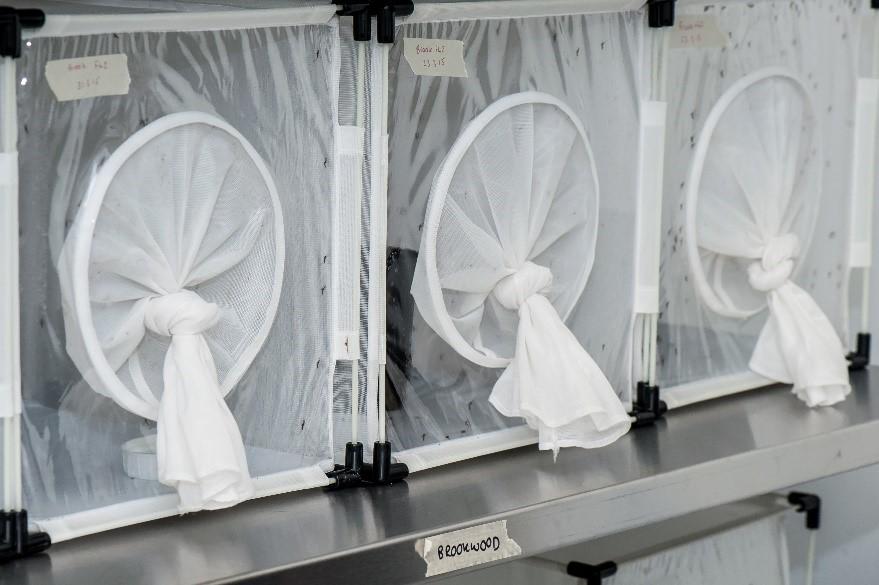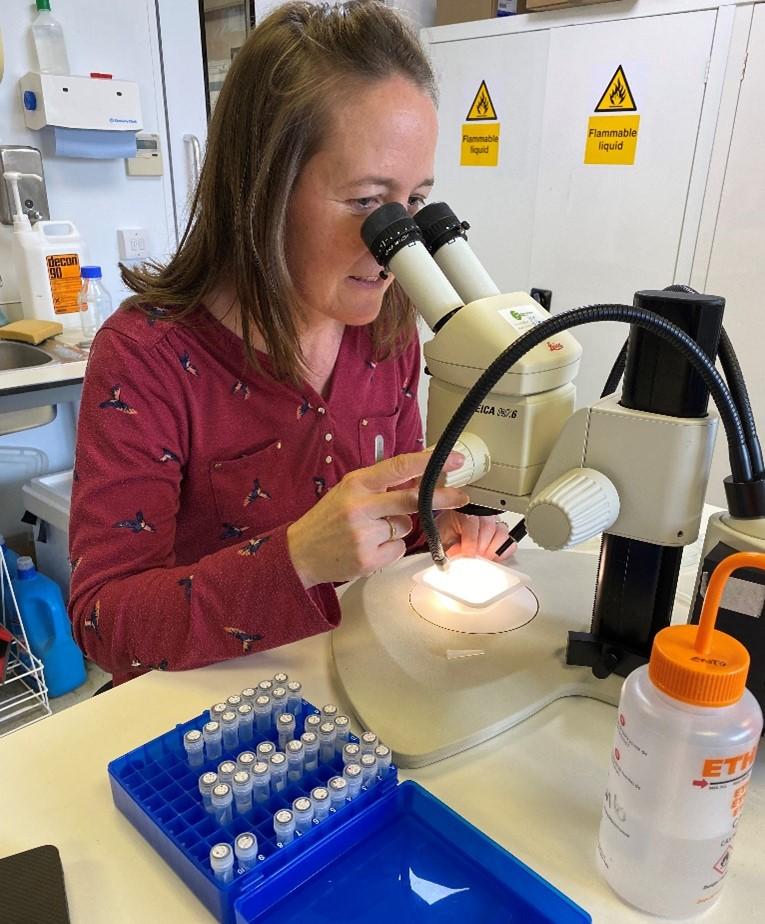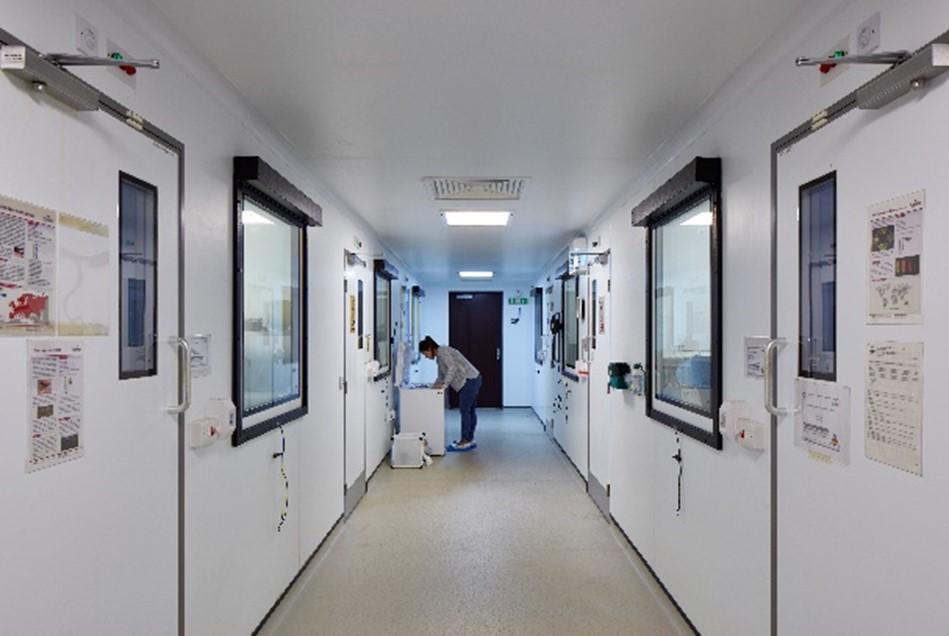Dr Melanie Nicholls is a postdoctoral scientist at The Pirbright Institute working in the Philip Mellor Insectary (PMI), a specialist science facility which houses exotic and endemic (native to the UK) insects for use in research on vector-borne viruses. Six bio secure laboratories are used to rear and maintain the insects, which include mosquitoes, biting midges, stable flies and moths. Several research groups at Pirbright, including Arthropod Genetics, Entomology, Transmission Biology and Vector Molecular Biology, rely on the expertise in insect production and supply provided by staff at the insectary to aid in their research.
We visited Melanie to find out what a typical day in the PMI looks like.
Melanie said: “Many insect species can be easily overlooked and under-appreciated, particularly those with more unappealing habits and lifestyles like the blood-sucking mosquitoes and midges! One of the things I most appreciate about my job here at Pirbright is the chance to get to know these creatures a bit better; the more we understand about their behaviour and lifestyles, and how that in turn impacts on our own lives the better.”

Melanie is responsible for maintaining populations of several species of insects. A favourite species that she works with is Stomoxys calcitrans, commonly known as the stable fly. Adult flies are fed horse blood every day and are housed in Bug Dorm cages (shown above) where the adult flies emerge a few days later, ready to begin the next cycle of insect growth. This work allows the insectary to maintain colonies to provide a continuous supply of insects to researchers.

Another part of Melanie’s day involves identifying Culicoides biting midges which have been collected by farmers and sent to Pirbright from across the UK. Some species of these Culicoides biting midges can spread diseases of livestock, such as bluetongue virus, but these midges are only active and biting during the warmer months of the year.
Surveillance of these insects can inform the midges are most active and therefore when the risk of disease spread is at its highest and lowest. In the event of an exotic disease such as bluetongue entering the UK, scientists and policy makers can respond according to the level of Culicoides midge activity, and farmers can take measures to protect their animals and livelihoods.
The unique lines of insects grown at Pirbright aren’t just studied at the Institute. Insects produced by the arthropod supplies team are shipped around the world to aid research on vector-borne diseases. Every week the insectary supplies ZSL London Zoo with Culicoides biting midges for their exhibit Tiny Giants and just recently Pirbright has been asked to provide insects for a TV programme.
If you’d like to know more about how insects are grown at Pirbright and see inside the Philip Mellor Insectary for yourself, visit https://www.labanimaltour.org/pirbright. This 360 virtual tour, produced and filmed by Understanding Animal Research, includes an interview with Pirbright’s Dr Christopher Sanders on the process of rearing midges to study bluetongue virus.
Main image shows the inside of The Philip Mellor Insectary (PMI) at The Pirbright Institute. Image 2 shows Bug Dorm cages housing adult flies. Image 3 shows Dr Melanie Nicholls identifying species of Culicoides midge under a microscope in the PMI.
